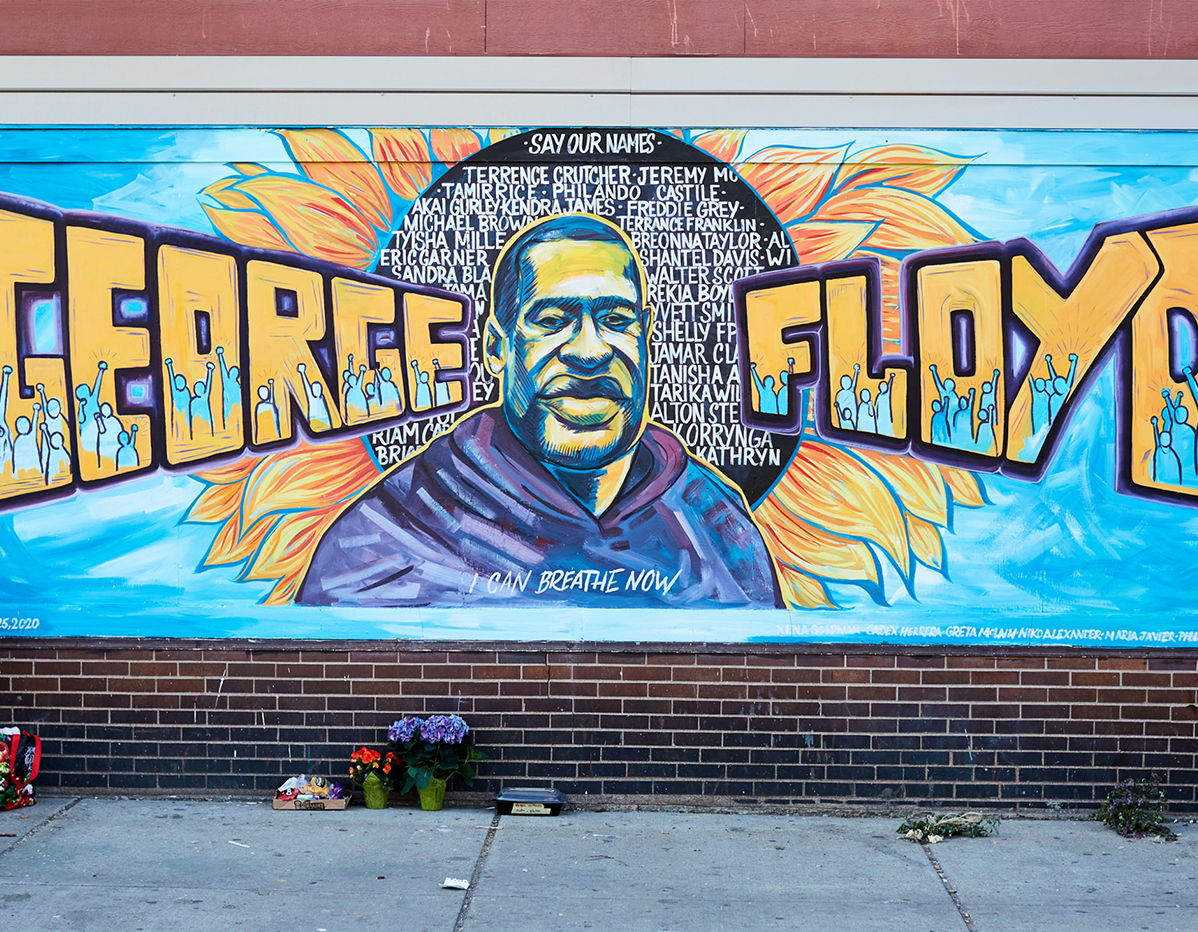
Yesterday, many millions of us exhaled with relief. We exhaled for those who can’t: George Floyd, Breonna Taylor, Duante Wright, Adam Toledo, and so many, many more.
A legal process that has never been applied fairly has convicted Derek Chauvin for the murder of George Floyd. It’s a meaningful verdict in part because it’s so rare.
But we cannot mistake this for a transformative moment. The call that erupted last summer in George Floyd’s name, to reimagine safety and justice — that is our task, nothing less.
This verdict did not change the daily reality on the ground for Black people. A Black teenage girl was killed by police in Columbus, OH — as the nation waited for this verdict. Police departments still absorb almost all of our nation’s public safety budgets, while proven, community-based violence prevention gets a tiny fraction of that funding. Black people are still not safe when they’re pulled over, jogging, or even surrendering to police. And the families affected by violence don’t get trauma care or healing to rebuild their lives.
And most importantly, our nation has not been accountable to the harm of centuries of racist policies embedded in the justice system and so many other systems.
We must never forget the origins of policing.
The people who enslaved more than 10 million African people quickly established some of the first policing patrols with clear objectives: to enforce slavery. Police went on to uphold segregation, allowed white mobs to routinely lynch Black people, and crushed civil rights protests. Today, police are the face of laws that criminalize poverty, warehouse millions of Black and brown people in one of the world’s largest prison systems, and kill as a matter of accepted policy.
Punishing one officer will not create the change we need.
Many people have said that this verdict represents accountability. We disagree. Chauvin has been punished. But true accountability is active and ongoing. It requires real acknowledgement of the harm done, meaningful work to repair that harm, and a change in future actions so the harm is not repeated. Derek Chauvin has not done that. Neither has our nation.
When we are accountable to our racist history and the violence it produces, and we work to repair that harm, then we can build a justice system that centers healing and equity, and creates safety for everyone.
Last night, we exhaled. Today, we are back to work. To the Black and brown members of the EJUSA family: in the names of those lost to racist policies and practices, and in your names, we will continue to dismantle this legacy of racism, trauma, and violence, and build in its place the justice system we all deserve.
Toward justice.



